News
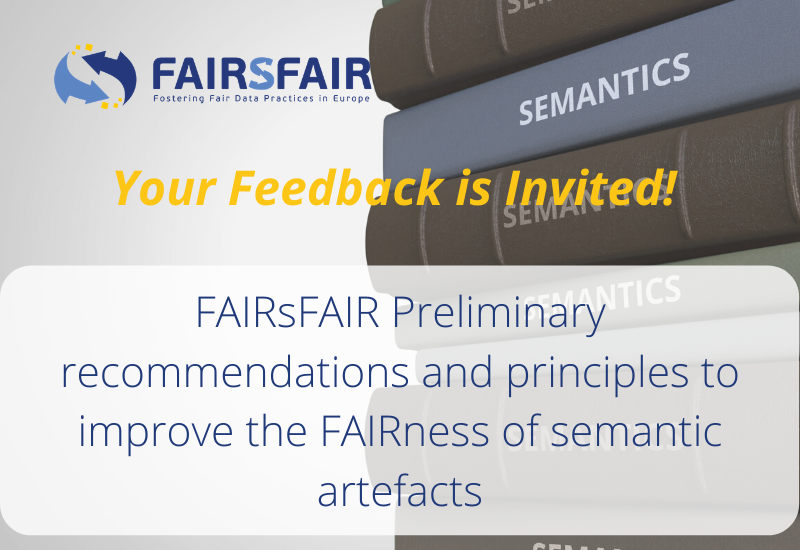
FAIRsFAIR Preliminary recommendations and principles to improve the FAIRness of semantic artefacts now open for comments.
FAIRsFAIR has published 17 preliminary recommendations and 10 general principles aimed at improving the overall FAIRness of semantic artefacts in a document which will be further developed in collaboration with the semantic community at large.
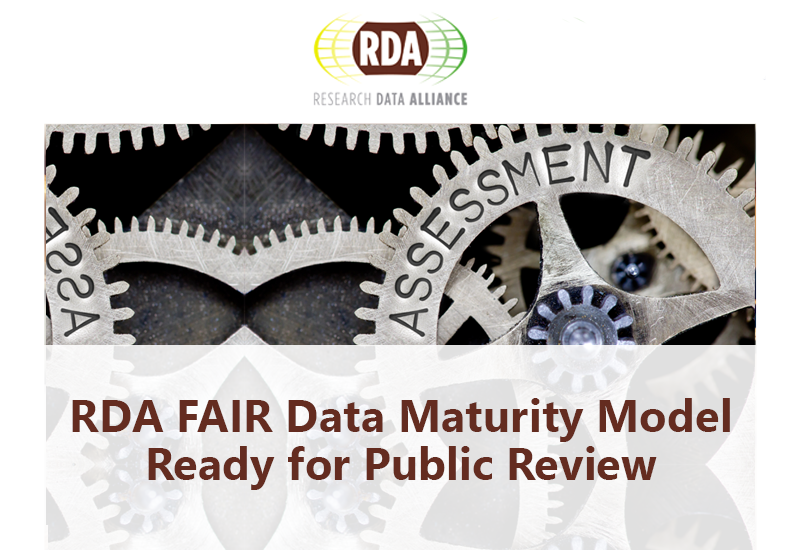
RDA FAIR Data Maturity Model ready for public review
The FAIR Data Maturity Model is now ready for review. The RDA FAIR Data Maturity Model Working Group has announced the public comment period for the document, which will be accessible until 13 May 2020.

FAIRsFAIR Assessment report on FAIRness of Services
Feedback is now sought on the FAIRsFAIR Assessment report on FAIRness of Services. The report marks the first milestone in a task to develop a FAIR assessment framework for data services.
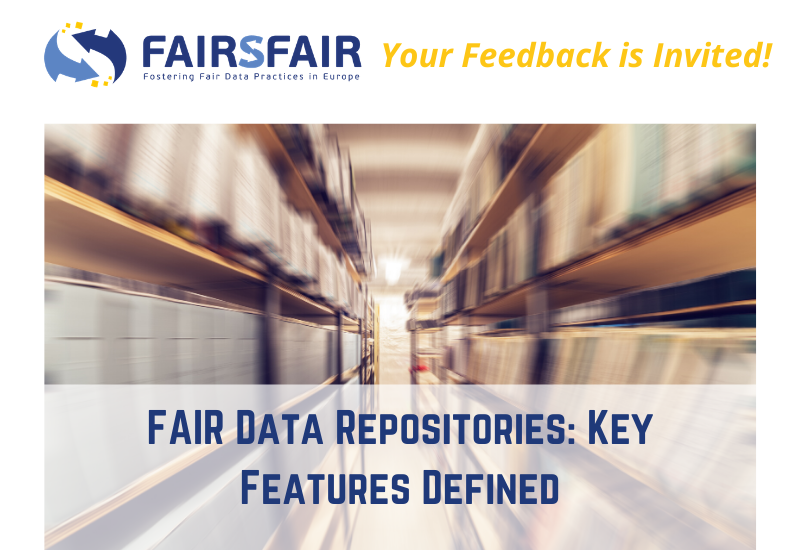
FAIR Data Repositories: Key Features Defined
Input is invited on a draft report tabling the features of FAIR repositories. The report presents the results of the first year of Task 2.3 of the FAIRsFAIR project.

FAIRsFAIR Report: Analysis of FAIR data production across disciplines and repositories in Europe
Input is now sought by FAIRsFAIR on the report D3.2 FAIR Data Practice Analysis. The report documents a comprehensive, multidisciplinary study of practices to support FAIR data production across a broad range of research disciplines and research data repositories in Europe. The report also identifies priority themes for initial work in FAIRsFAIR to support ESFRI cluster and EOSC projects in FAIR culture change.
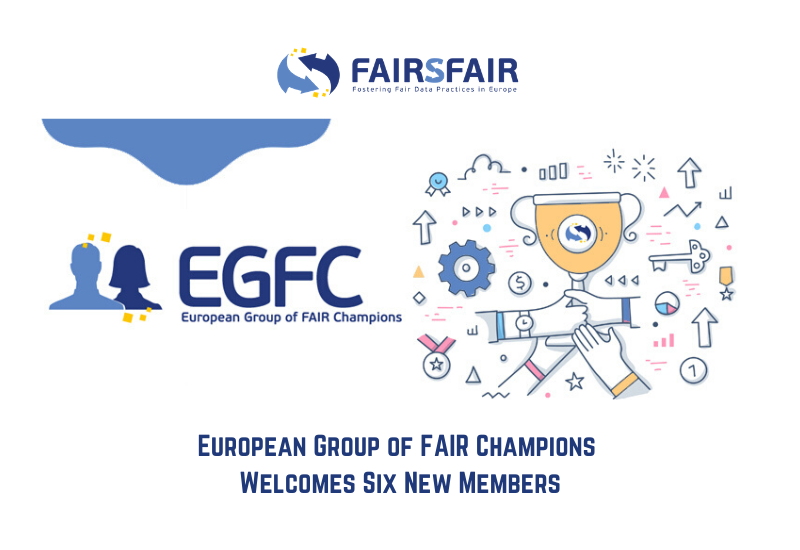
European Group of FAIR Champions Welcomes Six New Members
Six FAIR data experts have been welcomed into the European Group of FAIR Champions as a result of the open call launched late in 2019. Now numbering 11 FAIR ambassadors from around Europe, the EGFC represent FAIRsFAIR stakeholders, provide advice on operational challenges, and promote the adoption of FAIR data policies.
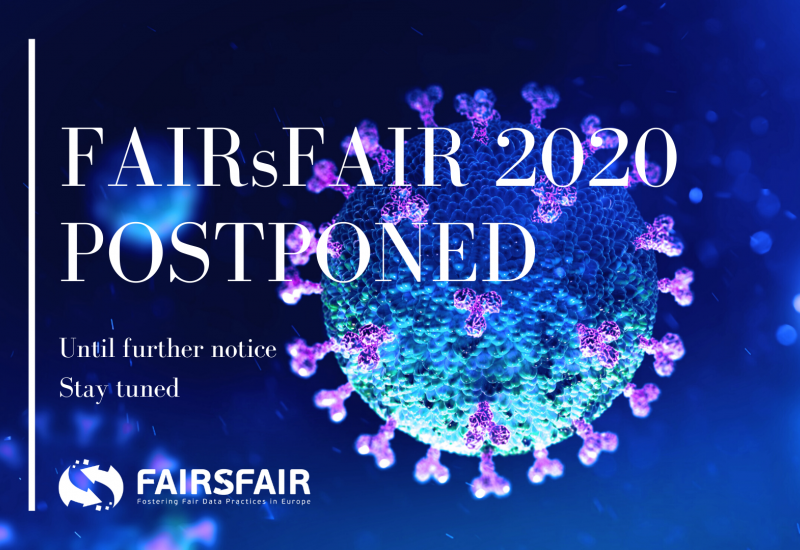
FAIRsFAIR 2020 meeting and all related workshops POSTPONED
In light of the ongoing COVID-19 outbreak, the declaration by the World Health Organisation of a pandemic and consequent movement restrictions imposed in countries all around Europe, FAIRsF
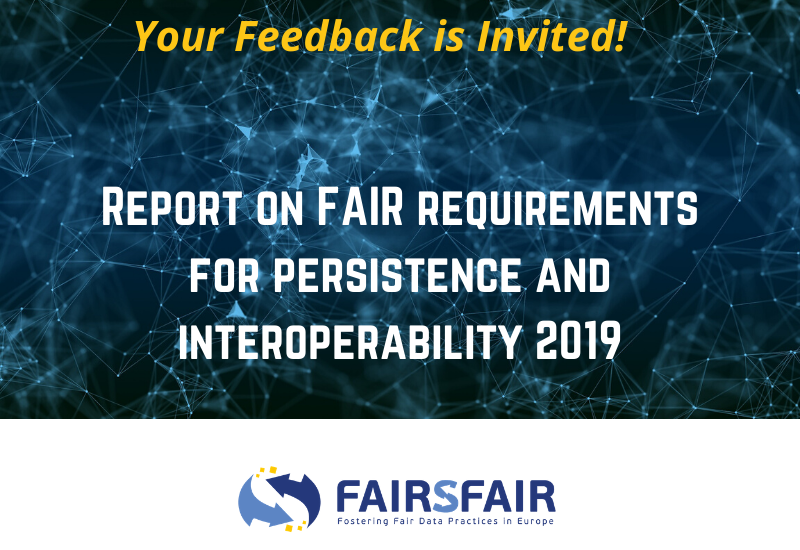
Persistent Identifiers and Interoperability: Outcomes from the FAIRsFAIR Survey of the European Scientific Data Landscape
The findings from the FAIRsFAIR investigation into persistent identifier usage and semantic interoperability across data infrastructures Europe-wide reveal a multiplicity of technical solutions and wide variation both within and between scientific domains. The report, based on a review of projects and landmarks listed by the European Strategy Forum on Research Infrastructures (ESFRI) and various Research Data Alliance (RDA) groups, is now available for perusal and comment.

"Invest 5% of research funds in ensuring data are reusable"
In a new article published on nature.com, CODATA President and GO FAIR co-lead Prof. Barend Mons has declared that it is irresponsible to support research but not data stewardship.


